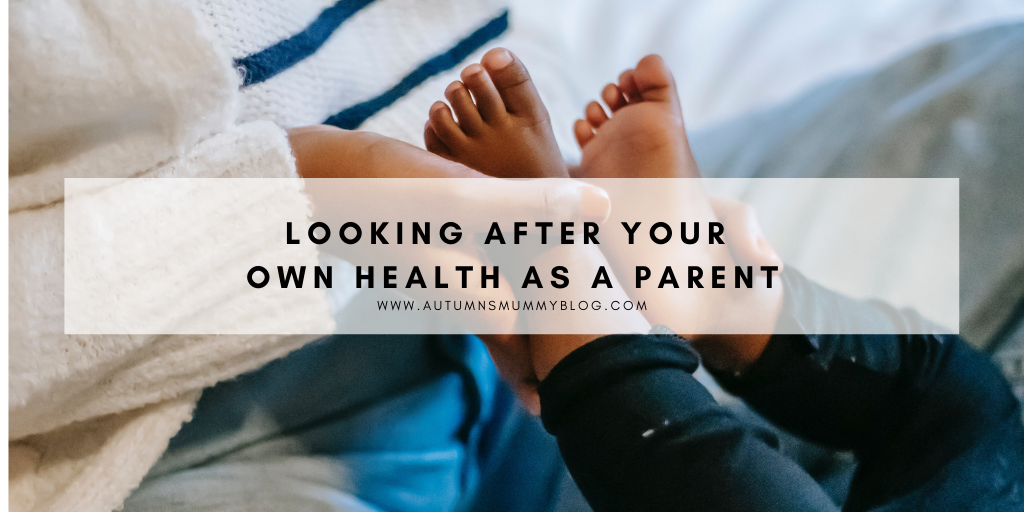
Collaborative Post¦ On top of looking after your kids, it’s important to look after yourself. Being a parent can be physically and mentally challenging. This can take its toll on the mind and the body.
Get seriously ill and it could affect your ability to look after your kids. This is why it’s so important to look after your own health as well as your child’s. Below are just some of the ways in which you can look after your own health as a parent.
Take time to destress
Chronic stress can have all kinds of negative impacts on the mind and body. Short-term effects are likely to include headaches, achy muscles, exhaustion, digestive problems and anxiety/depression. In the long run, you could increase your risk of heart disease, strokes, cancer and possibly even dementia.
Sometimes stress cannot be avoided – especially when looking after young kids. You can however take steps to reduce stress. At the end of a long day when your child has settled, try to engage in stress busting activities such as having a hot bath, listening to music or reading a book.
Don’t live on unhealthy foods
Many unhealthy foods can be quick and convenient to prepare. However, they could eventually take a toll on your body. You could start to see weight gain and your risk of developing diabetes and hypertension could increase.
Try to make a point of regularly preparing healthy meals from fresh ingredients. There are lots of easy healthy meal recipes that you can look into which are great for families. When it comes to snacks, try to eat more healthy options like fruit and nuts.
These options can help ensure you get the vitamins you need to help feel your best. You can also get IV therapy to restore vitamins and rehydrate you, while specialized IV ingredients such as NAD can boost your health. There are many NAD drip benefits, from supporting immune health to promoting cellular repair and more.
Be active
A lot of people gain weight after having kids – which can be a mixture of stress, eating the wrong foods and not being active. Exercise is also important for maintaining a healthy heart and healthy lungs, as well as being important to our mental health. All in all, it’s important to stay active.
You could schedule time to exercise alone (such as going to the gym or going out on a jog) or you could find ways to be active with your kids. This could include going on walks together, going on family bike rides, playing games at the park or even taking up an active sport together such as badminton or martial arts.
Prioritize sleep
It’s typical for parents of young kids to get very little sleep. This sleep deprivation can wear down the body and mind. You could also find that your immune system is low as a result of lack of sleep, which could increase your risk of catching various bugs and viruses.
When looking after a baby, prioritizing sleep is important. If you can sleep when your baby sleep, or take shifts with your partner to give each other time to catch up on sleep. There may even be times when it’s worth letting a family member or friend babysit for a couple hours so that you can catch up on sleep. As your child gets older, they’ll adopt a more ‘normal’ sleeping pattern and you’ll be able to sleep more too – it’s important to remember this during those sleepless nights.
Stop putting off that doctor’s visit
Got a health concern that could be worth seeing a doctor for? A lot of parents put off seeing a doctor because of the hassle. It’s true that finding time to go to the doctor can sometimes be difficult. However, if you have a health problem, it’s possible that it could be getting worse, and the longer you leave it, the more difficult it will be to treat.
A good solution could be to talk to an online GP. This can allow you to get checked out from the comfort of your home, which could save you having to travel to a doctor or arrange childcare.
Look after your mental health
About 1 in every 10 women experience post-partum depression after having a child. Other mental health problems can also develop as a child gets older – you may start to get weighed down by negative feelings that you’re not good enough or you may resent the fact that you’ve had to give up hobbies, work or your social life.
If you’re feeling down, don’t be afraid to reach out to someone. This could be a friend, a family member or a counsellor. You may even find peace in joining support groups. Most importantly, try to be honest with yourself – you shouldn’t be constantly talking yourself out of getting help.
Disclosure: This is a collaborative post.
